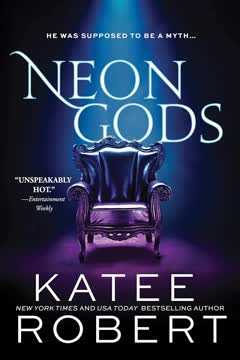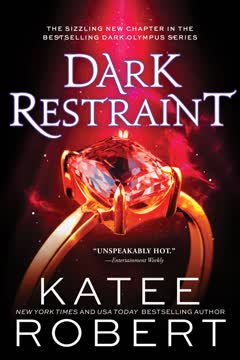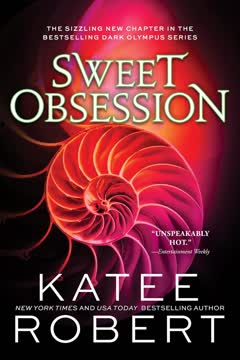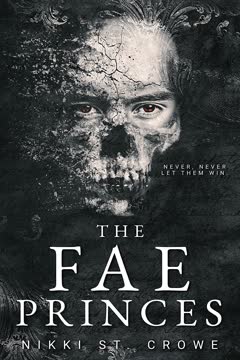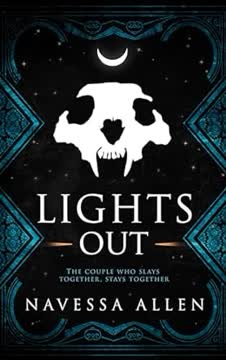Plot Summary
Power Over Love
Eris Kasios, now Aphrodite, has always known her fate: to marry for power, not love. As Olympus teeters on the edge of chaos, she sacrifices her heart, turning away from Adonis, the man she truly loves, to marry Theseus Vitalis—now Hephaestus—who has seized his title through murder. The city's safety, her family's legacy, and her own survival demand this cold calculation. Yet, beneath her steely resolve, the ache of lost love and the weight of her choices threaten to unravel her. The wedding is not a celebration, but a battlefield, and Aphrodite steels herself for the war to come, determined to protect Olympus at any cost—even if it means destroying her own happiness.
Enemies at the Altar
Theseus, now Hephaestus, is thrust into a political marriage with Aphrodite, orchestrated by the Thirteen to keep Minos's ambitions in check. Both bride and groom are unwilling, each viewing the other as a threat. The ceremony is a spectacle, a public perception and media manipulation display of unity masking private animosity. The city's elite watch with suspicion, knowing this union is a powder keg. As vows are exchanged, the air crackles with tension, and the newlyweds plot against each other even as they're bound together. The marriage as political weapon is a chess move, not a love match, and both are determined to outmaneuver the other, even if it means blood will be spilled.
Wedding Night Warfare
The wedding night is a battleground, not a honeymoon. Aphrodite and Hephaestus, both masters of manipulation, use sex as a weapon, each seeking to assert dominance and secure their position. Their physical connection is electric, fueled by mutual resentment and reluctant attraction. Yet, beneath the surface, vulnerability flickers—Aphrodite's longing for real connection, Hephaestus's buried pain. The night ends not in intimacy, but in renewed hostility, each more determined than ever to use the other for their own ends. The war between them is just beginning, and neither is willing to surrender.
Old Flames, New Wounds
As Aphrodite's marriage unfolds, old relationships resurface. Adonis, her former lover, is drawn back into her orbit, his pain and anger simmering beneath a polished exterior. Pandora, Hephaestus's closest friend, becomes a pawn in the power games, her warmth and optimism a stark contrast to the city's brutality. Both are caught between loyalty and self-preservation, their affections weaponized by those around them. The tangled web of desire, jealousy, and betrayal grows ever more complex, threatening to ensnare everyone involved.
Dangerous Alliances
In the aftermath of the wedding, alliances shift and new deals are struck. Aphrodite leverages Pandora's presence to unsettle Hephaestus, while Hephaestus seeks to use Adonis to destabilize his wife. Meanwhile, the city's power players—Minos, the Thirteen, and their households—maneuver behind the scenes, each with their own agenda. Trust is a rare commodity, and every relationship is a potential liability. As secrets are traded and boundaries crossed, the line between friend and foe becomes dangerously thin.
Seduction as Strategy
Aphrodite and Hephaestus weaponize seduction, using their bodies and desires to manipulate those around them. Aphrodite draws Pandora into her orbit, blurring the lines between genuine attraction and calculated use. Hephaestus and Adonis strike a bargain, their mutual resentment giving way to unexpected chemistry. Sex is never just sex in Olympus—it's a means of control, a way to gather information, and a method of keeping enemies close. Yet, as passion ignites, the risk of real emotion threatens to undermine carefully laid plans.
Tangled Loyalties
The characters are forced to confront where their true loyalties lie. Aphrodite is torn between her duty to Olympus and her growing feelings for both Hephaestus and Pandora. Hephaestus grapples with his debt to Minos and his unexpected attachment to his wife and Adonis. Pandora and Adonis, each in their own way, must decide whether to protect themselves or risk everything for those they care about. The city's violence intensifies, and every choice carries the potential for betrayal.
Games of Public Perception
As assassination attempts and scandals rock the city, the battle for public perception and media manipulation becomes as deadly as any physical confrontation. Aphrodite and Adonis orchestrate a campaign to recast Hephaestus as a sympathetic figure, while Minos manipulates the populace to further his own ends. The press, gossip, and social media are weapons, and every move is scrutinized. The characters must perform for an audience that is both fickle and bloodthirsty, knowing that one misstep could mean ruin—or death.
The Price of Survival
The violence escalates, and the cost of staying alive grows steeper. Aphrodite and Hephaestus are both targeted, forced to rely on each other in ways neither anticipated. Old wounds are reopened, and the trauma and healing of their pasts shapes their present choices. The city's power structure is revealed to be more fragile than anyone realized, and the characters must decide what they're willing to give up to survive—love, loyalty, or even their own humanity.
Blood in the Water
The city is awash in blood as enemies strike from the shadows. Poisonings, shootings, and stabbings become commonplace, and no one is safe—not even the most powerful. The Thirteen are forced to confront the reality that their rule is no longer secure, and that the people they once protected may now be their greatest threat. In the chaos, true intentions are revealed, and the cost of power becomes undeniable.
Poison and Betrayal
A failed poisoning attempt on Aphrodite's life exposes the depth of the city's corruption. Friends and lovers are forced to question each other's motives, and the sense of safety is destroyed. The attack brings the central quartet—Aphrodite, Hephaestus, Adonis, and Pandora—closer together, but also highlights the dangers of vulnerability. As the body count rises, the characters must decide who they can trust, and whether love can survive in a world built on betrayal.
Shifting Allegiances
The lines between friend and foe blur as the characters are forced to work together to survive. Hephaestus begins to question his loyalty to Minos, while Aphrodite contemplates turning her back on the city that has demanded so much from her. Adonis and Pandora, once on the periphery, become central to the group's survival. The possibility of a new kind of family—one built on choice rather than obligation—emerges, even as the threat of destruction looms.
The Cost of Power
The Thirteen are forced to reckon with the consequences of their rule. Perseus (Zeus) faces the possibility of becoming the very monster he sought to replace, while Aphrodite and Hephaestus must decide whether to cling to power or let it go for the sake of those they love. The city's demands are unrelenting, and the price of leadership is paid in blood, heartbreak, and the loss of self. The characters must choose between the roles they were born into and the people they want to become.
Monsters and Martyrs
As the violence reaches its peak, the characters confront the reality that survival may require martyrdom. Aphrodite and Hephaestus, both shaped by trauma and healing and expectation, must decide whether to continue being weapons for others or to claim their own agency. The city's appetite for spectacle and sacrifice is insatiable, and the threat of becoming a monster—or a martyr—haunts every decision. In the end, the only way forward may be to break the cycle entirely.
Choosing Sides
The central quartet must choose where they stand: with the city, with their families, or with each other. Hephaestus breaks from Minos, resigning his title and rejecting the role of weapon. Aphrodite, wounded and weary, chooses love and freedom over power. Adonis and Pandora, once outsiders, become the glue that holds the group together. The Thirteen's era is ending, and a new kind of family—chosen family vs. blood ties—emerges from the wreckage.
The Breaking Point
Faced with the impossibility of reconciling duty and desire, Aphrodite and Hephaestus both resign their titles. The city's power structure is forever altered, and the legacy of violence is broken—at least for them. The cost is high, but the reward is a chance at real happiness, free from the expectations and manipulations that have defined their lives. The future is uncertain, but for the first time, it belongs to them.
Love in the Crossfire
In the aftermath of violence and betrayal, the central quartet finds solace in each other. Their love is messy, unconventional, and hard-won, forged in the crucible of Olympus's chaos. They are no longer pawns in someone else's game, but agents of their own fate. Together, they create a new kind of family, one built on choice, trust, and the willingness to fight for each other. In a city that devours its own, they have found something worth living—and dying—for.
Freedom from the Cage
The story ends not with a coronation, but with a quiet revolution. Aphrodite, Hephaestus, Adonis, and Pandora step away from the roles that have defined and confined them, choosing each other over power, legacy, or revenge. The city will go on, as it always does, but for the first time, they are free—free to love, to hope, and to build a life on their own terms. The cage is broken, and the future, though uncertain, is finally theirs.
Characters
Aphrodite (Eris Kasios)
As the daughter of the former Zeus and sister to the current one, Eris—now Aphrodite—has been shaped by a lifetime of political machinations and familial trauma and healing. She is fiercely intelligent, manipulative, and unafraid to use her beauty and sexuality as weapons. Her marriage as political weapon to Hephaestus is a calculated move to protect Olympus, but it comes at the cost of her own happiness and the love she shares with Adonis. Beneath her icy exterior lies a deep well of vulnerability and longing for genuine connection. Over the course of the story, she is forced to confront the limits of power, the pain of sacrifice, and the possibility of choosing love over legacy. Her journey is one of reclaiming agency, breaking free from the roles imposed on her, and daring to hope for a life built on her own terms.
Hephaestus (Theseus Vitalis)
Plucked from a brutal orphanage by Minos and forged into a tool of violence, Theseus—now Hephaestus—has always been defined by what others want from him. His ascension to the Thirteen is marked by bloodshed and manipulation, and his marriage as political weapon to Aphrodite is both a punishment and a test. Outwardly gruff, physically imposing, and slow to trust, he is haunted by trauma and healing and a desperate need for loyalty. His relationship with Pandora is the one constant in his life, but new bonds with Aphrodite and Adonis force him to question his allegiance to Minos. As he is targeted by both enemies and supposed allies, Theseus must decide whether to remain a weapon or claim his own agency. His arc is one of painful self-discovery, learning to accept love, and ultimately choosing freedom over servitude.
Adonis
Adonis is the city's golden boy, beloved by the public and accustomed to moving through life with ease. His on-again, off-again relationship with Aphrodite is a source of both joy and pain, and her marriage to Hephaestus shatters his sense of security. Though he is not a power player in the traditional sense, Adonis is deeply empathetic, quick-witted, and capable of surprising strength. Drawn into the central conflict by love and loyalty, he becomes both a pawn and a player, striking a bargain with Hephaestus and navigating the treacherous waters of public perception and media manipulation. His journey is one of heartbreak, healing, and the realization that true strength lies in vulnerability and chosen family vs. blood ties.
Pandora
Pandora is Theseus's oldest friend and emotional anchor, having survived the same brutal upbringing. She is warm, open, and endlessly curious, often serving as the moral compass for those around her. Though not a power broker herself, she is drawn into the city's machinations by virtue of her relationships. Her presence is a balm to the wounded, and her ability to see the best in people is both a strength and a liability. As she is courted by Aphrodite and caught in the crossfire of violence, Pandora must decide whether to remain a passive observer or claim her own agency. Her arc is one of self-assertion, learning to set boundaries, and embracing the messy, beautiful possibility of love.
Minos
Minos is the architect of much of the chaos in Olympus, orchestrating assassinations, power grabs, and the destabilization of the Thirteen. He is a father figure to Theseus and The Minotaur, but his affection is conditional and transactional. Charismatic and cunning, Minos is always several steps ahead, willing to sacrifice anyone—including his own—if it serves his ambitions. His psychological hold over his household is profound, and his ability to exploit weakness is unmatched. Ultimately, Minos represents the old order: power at any cost, loyalty as a weapon, and love as a liability.
Perseus (Zeus)
As the new Zeus, Perseus is determined to avoid the mistakes of his monstrous father, but the weight of leadership threatens to turn him into the very thing he despises. He is strategic, emotionally distant, and willing to make hard choices for the good of the city—even if it means sacrificing his own family. His relationship with his sisters, especially Aphrodite, is fraught with both love and rivalry. Perseus's arc is a meditation on the cost of power, the dangers of becoming what you hate, and the impossibility of saving a city that devours its own.
Helen (Ares)
Helen, now Ares, is a rare idealist in a city built on cynicism. She has fought against the roles assigned to her, winning her title through her own merit. As Aphrodite's sister, she serves as both confidante and conscience, urging her to choose happiness over duty. Helen's leadership is marked by a desire to protect rather than dominate, and her relationships with her partners, Achilles and Patroclus, provide a model of chosen family vs. blood ties. She is a symbol of hope, but also a reminder of how easily hope can be crushed in Olympus.
The Minotaur
The Minotaur is Minos's biological son and Theseus's rival. He is physically formidable, emotionally reserved, and deeply loyal to his father's cause. His role is that of enforcer, carrying out Minos's will without question. Yet, beneath the surface, there are hints of doubt and longing for something more. The Minotaur's arc is one of potential redemption, should he ever choose to break free from his father's shadow.
Ariadne
Ariadne, Minos's daughter, is kept on the sidelines, her potential stifled by her father's control. She is clever, resourceful, and quietly rebellious, seeking connection and meaning beyond the roles assigned to her. Her relationship with Pandora and Icarus offers a glimpse of what could be if she ever escapes Minos's grasp. Ariadne represents the next generation, caught between old loyalties and new possibilities.
Icarus
Icarus is Minos's biological son, but he is perpetually at odds with his father. He masks his pain with sarcasm and mischief, often acting out in ways that draw unwanted attention. His bond with Ariadne and Pandora is a lifeline, and his willingness to challenge authority hints at a capacity for growth. Icarus is a wild card, capable of both great harm and great good, depending on which path he chooses.
Plot Devices
Marriage as Political Weapon
The central plot device is the forced marriage between Aphrodite and Hephaestus, a union designed to consolidate power and keep enemies close. This marriage is not about love, but about strategy, surveillance, and survival. It serves as both a literal and metaphorical battleground, with consummation, seduction, and betrayal all wielded as weapons. The marriage's public perception and media manipulation performance is as important as its private reality, and the tension between appearance and truth drives much of the narrative.
The Assassination Clause
A little-known law allows anyone who kills a member of the Thirteen to claim their title, turning Olympus into a city of would-be assassins. This device creates constant tension, as every character is both hunter and hunted. It destabilizes the power structure, fuels paranoia, and forces the Thirteen to fight not just external enemies, but the very people they rule. The clause is a ticking time bomb, ensuring that violence is always imminent and that trust is a luxury no one can afford.
Public Perception and Media Manipulation
The battle for public opinion is as fierce as any physical confrontation. Characters use the press, social media, and gossip to shape narratives, distract from scandals, and undermine rivals. Foreshadowing is woven through headlines, rumors, and staged events, with every move calculated for maximum impact. The city's appetite for spectacle is both a shield and a sword, and those who fail to control their image are quickly devoured.
Chosen Family vs. Blood Ties
The story explores the tension between inherited obligations and chosen connections. Characters are forced to decide whether to remain loyal to those who raised them—no matter how toxic—or to forge new bonds based on trust, love, and mutual respect. This device is mirrored in the central quartet's evolution from adversaries to lovers and allies, suggesting that true strength lies in the families we choose, not the ones we're born into.
Trauma and Healing
The narrative structure is cyclical, with characters repeatedly confronting the wounds of their pasts—abuse, abandonment, betrayal—and struggling to break free from destructive patterns. The story uses intimate moments, confessions, and acts of care as foreshadowing for deeper transformation. Healing is never easy or complete, but it is possible, and the hope of it drives the characters to risk everything for a better future.
Analysis
"Cruel Seduction" is a dark, sensual reimagining of Greek myth that interrogates the cost of power, the legacy of trauma and healing, and the possibility of love in a world built on violence. Katee Robert's Olympus is a city where every relationship is a negotiation, every pleasure a potential weapon, and every act of vulnerability a risk. The novel's central quartet—Aphrodite, Hephaestus, Adonis, and Pandora—embody the tension between duty and desire, survival and surrender, legacy and freedom. Their journey is one of painful self-discovery, as they learn that true strength lies not in domination, but in the willingness to be seen, to care, and to choose each other in the face of overwhelming odds. The book's modern resonance lies in its exploration of chosen family vs. blood ties, the dangers of unchecked ambition, and the courage required to break cycles of harm. Ultimately, "Cruel Seduction" suggests that while power may corrupt and legacy may bind, love—messy, imperfect, and fiercely chosen—offers a way out of the cage.
Last updated:
Review Summary
Cruel Seduction received mixed reviews, with an average rating of 3.69 out of 5. Many readers praised the steamy romance and complex character dynamics in this polyamorous installment of the Dark Olympus series. The political intrigue and world-building were highlights for some, while others felt the plot was underdeveloped. Some reviewers found the relationships rushed and lacking depth, while others appreciated the messy and emotional connections between the four main characters. The book's spicy content and diverse representation were generally well-received.

